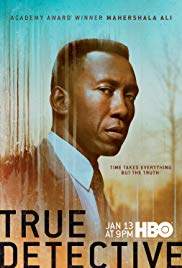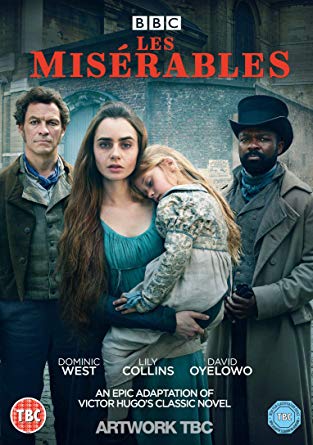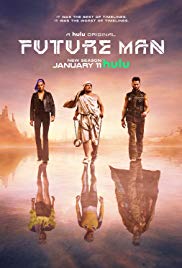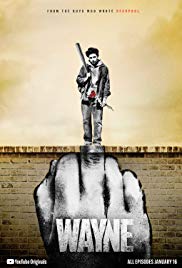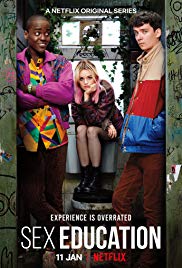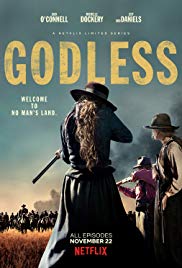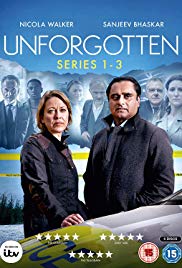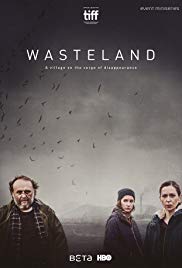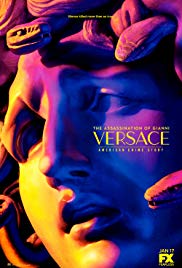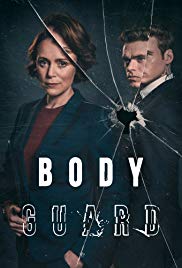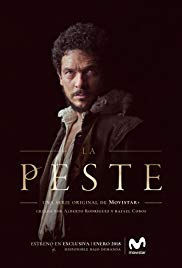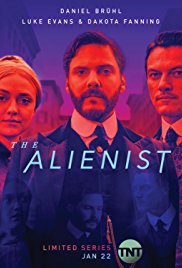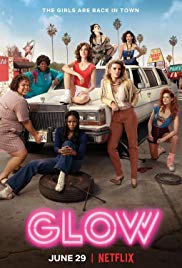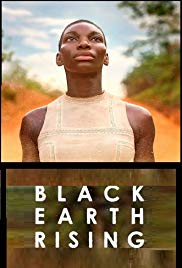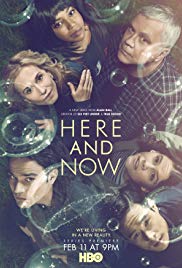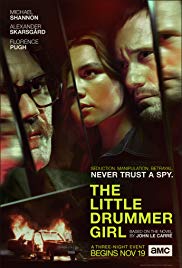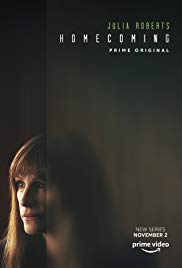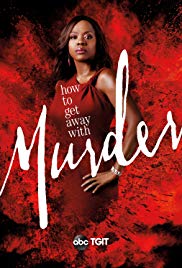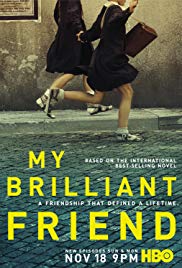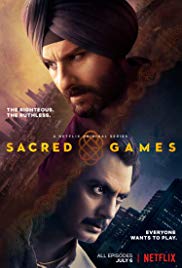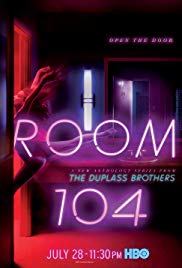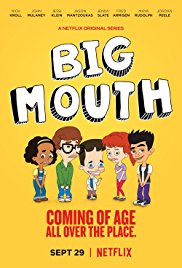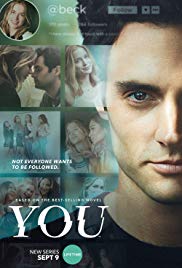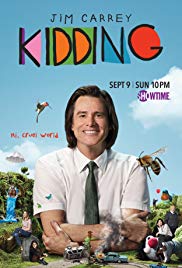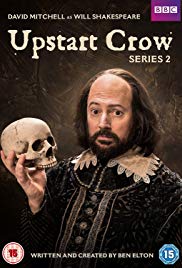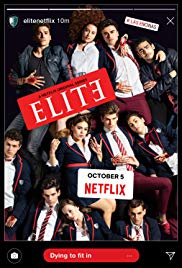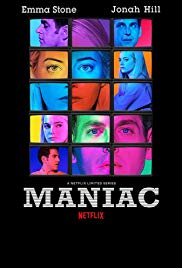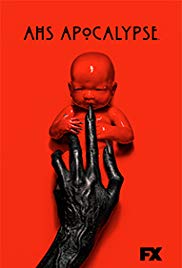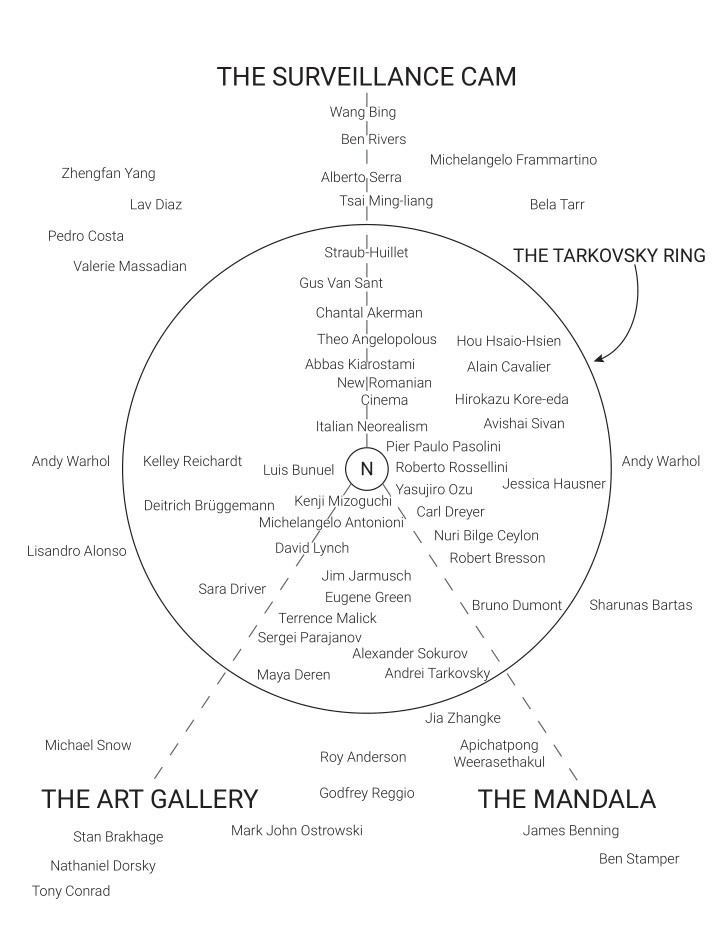|
|
|
|
‘I'm done with you, but I'm going to give you a hint. You need to read James Baldwin.' She recommended Giovanni's Room and The Fire Next Time. That was how my love affair began. In going back to Poland I was able to tell stories in which history has a real impact on what people do. That is something I felt I could never do in England. History in the UK is so diffuse and people have such different experiences... My real interest was in what the cold war left behind. The ruins of Marxism. Narrative structure is prison; it is tradition; it is a lie; it is a formula that is imposed... A script is a verbal attack on a visual world. Potentially a film has a universe of visuals to deal with. Once you tame it and restrain it within a script that means you have a hundred pages of dialogue. It is heavily cut off in terms of visuals. I control only the rules. If the rules were wrong, I could change the rules. But I could not break the rules. The point is how to be yourself and not to be yourself at the same moment. You are in an environment that you know is a game, but it doesn't work if you are not yourself. Cocteau wrote that cinema will become a mature art when you are able to use your camera like your pen, and that's where we are. I have a pen and I have a camera. New technology allows me to go into different areas of content that I couldn't go into with my traditional camera. I am a film-maker. I have often stated that I have come to film making, I have chosen the camera as my tool, my “weapon,” to protect myself against “the world” — something that helps me to live in it — so why don't I do the same now, when my body is under attack? No one was experimenting. Not Maya, not Stan Brakhage, and certainly not me. We were making different kinds of films because we were driven to, but we did not think we were experimenting. Leave that to the scientists… It is important to know that what I do is not artistic. I am just a film-maker. I live how I live and I do what I do, which is recording moments of my life as I move ahead. And I do it because I am compelled to. Necessity, not artistry, is the true line you can follow in my life and work. To me, the meaning of life is to try to be a better person today than you were yesterday. And I don't think you'll succeed... But the meaning of life isn't to be a better person today than you were yesterday, it's to try to be. You can still go to sleep and say, ‘Well, I tried. I failed today. I blew it. I got angry and lost my temper when that guy cut me off in traffic. I took the last bit of coffee in the break room, and I didn't make a new pot. And I knew that it was my friend Sarah's birthday, and I just couldn't get around to calling her and wishing her a happy birthday. Yeah, I failed! I failed a bunch of times, but I was actively trying. We've got five great films here, and they're great for one reason: They tell the truth. But there is one film missing from this list that deserves to be on it because, ironically, it might tell the biggest truth of all. And that's ‘Do The Right Thing.' I had so many secrets as Alex. The woman I was playing was not the same one who was perceived by the public. But I didn't have the dialogue or the scenes to illuminate her backstory. If you did Fatal Attraction from Alex's point of view, she would be a tragic person, not a dangerous, evil one. [ ‘Suspiria' (2018) ] did not excite me, it betrayed the spirit of the original film: There is no fear, there is no music. The film has not satisfied me so much. There was a really interesting thing in the 1950s, after the second world war; the Americans did an exhibition called the Family of Man, which was a collection of photographic portraits of people from all over the world. It was a complete sensation. It was funded by the State Department, not as a great conspiracy, but because of this idea that what you have to show people now is that we're just a world of individuals. Because what Hitler and Stalin had done was show us as mass crowds – and that went badly out of control and led to horror. I'm always surprised by how rarely I see other film directors or producers at performances. French cinema still hasn't left behind the cliche that it should be above theatre. Jean-Luc Godard once joked that he wasn't interested in it because stage actors spoke ‘too loudly,' and it stuck. And the great ending of Gravity... The studio was pressuring Alfonso to "show" helicopters in the sky, coming to rescue Sandra Bullock's character. He said "no". Emerging from the water was the triumph, touching the earth- standing...
|
||
บันทึก: กำลังติดตามอยู่ตอนนี้
|
||
Sex Education - a tv series set in the United States of UK! All very snappy but our kids don't live in mock New England mansions or go to faultless Victorian buildings to sick form collij; nor do we have jock type knobs pulling up in soft-top cars in the collij parrrrking-lot. Shame cos subject matter and scipt ain't that bad. What is it? "Kids! Get used to being part of the US.... Brexit is coming!" ? There's nothing inherently false about that, we need hope to get out of bed in the morning, but there are some people who don't recover from certain blows – sometimes people go down with the people that they are closest to... I wanted to make a film about that, but if I did make that as a bleak drama that ends on something of a hopeless note, first good luck finding the financing – and then if I do find the financing, I'm not going to have the resources that I had for this film – but then good luck finding an audience for it. When people say they look at a movie “on its own terms,” they really mean they're following how it is advertised. What explains 1999's extraordinary films? DVD sales began in 1997 and flooded studios with extra cash, especially in those first years as home viewers built their collection. Studios invested the windfall in a generation of upstart directors, predicting that audiences would buy a good film twice: once in the theater, and again for their shelf. It's hard to make a comedy from success. The best ones are about failure and bad luck and inadequacy. And this film
[Stan & Ollie ] is about the transience of all the success that went before. Do you know that film Anvil: The Story of Anvil ? It's a documentary about a heavy metal band and their glory days are behind them and they're flat broke. And I don't particularly like the music. In fact, I sort of hate it. But what I was really moved by was their affection and unfailing loyalty in middle age. It's only as they get older that they realise they love each other. Cats meow all the time when they're on screen. Dogs bark when you don't see them barking. It's the nature of film sound that quite often we are a little bit ‘show and tell'. You look at the screen and go: ‘What would the audience expect to hear?' I'll tell you a big life lesson. Paul [Thomas Anderson] was over at my house, I think it was my 30th birthday party, and I had just seen a movie I didn't love. I said to him over a drink, “It's not a good movie,” and he so sweetly took me aside and said very quietly, “Don't say that. Don't say that it's not a good movie. If it wasn't for you, that's fine, but in our business, we've all got to support each other.” The movie was very artsy, and he said, “You've got to support the big swing. If you put it out there that the movie's not good, they won't let us make more movies like that.” There was a very basic script [ for Antonioni's The Passenger ], but a lot of the time I was just staring out of a window. I was very good at that! The line ‘I'll see you on the dark side of the moon' is me speaking to the listener, saying, ‘I know you have these bad feelings and impulses because I do too, and one of the ways I can make direct contact with you is to share with you the fact that I feel bad sometimes.' Look, you talk about Spielberg, Loach, Erice. All those guys are in my DNA. This is the first film I tried to do without any sense of influence, and the first film [in which] I consciously tried not to pay homage or do anything derivative. So much so that if I found myself doing a shot that reminded me of another film, I would change it. The production designer, Eugenio Caballero, more than once, asked: “Why are you changing the shot? That was beautiful,” and I'd say: “Yes, it's beautiful because it's not mine.” Then, when I took the new shot, he'd say: “But this is boring,” and I'd say: “Yes, it's boring, but it's mine.” In the end, it's impossible to escape who you are. And who I am is a person who as a film-maker is infused with the DNA of other film-makers. Probably, I'm too much of a cinephile to be an auteur. Here's the key: Von Trier's latest art deconstruction ["The House That Jack Built" ] targets popular film genres such as fantasy, action, and true-life movies. Critics often praise the trend for being “wicked” or “dark.” Senator Bob Dole once referred to it as “a culture of depravity.” Von Trier makes those opposing opinions merge. It's his boldest prank. The House That Jack Built works as satire by rubbing the audience's face in the ugliness it enjoys. This wicked dark depravity now defines our post-civilized culture. [Nicolas Roeg] made a love scene ["Don't Look Now" ] between a grieving wife and her husband with no cries of passion, no sounds of orgasm, no words. All you hear is Pino Donaggio's music as Nic intercuts their making love with them getting dressed to go out to dinner. Magical. You don't see that scene as a voyeur. You watch it and it reminds you of yourself, of you being loving and you being loved.
|
||
Note: My favorite TV series of 2018
|
||
We all loved it when it was happening, it was like ‘Monty Python.' I was in my late teens, and the whole country was loving it. There were these people in three-piece suits, very establishment, plotting murders and talking about biting the pillow! The jokes were incredible. If you imagine a Russian plotting a murder it would probably go quite well. Or a Saudi. Or an American. The Mafia do a good job. But [here] it's English because it's such a failure! If I suggest actors or actresses with unusual looks, I have a much harder time getting them through than anyone else. It's difficult to talk about because you don't get a straight answer. You're not going to get a studio head that says ‘We don't think this person is beautiful enough'. You get all sorts of strange answers. But that is the reason. There's no doubt that that is the one taboo which is very hard to overcome... I'm embracing that. But I do think that the world consists of many elements – and I don't necessarily think that beauty is the only interesting thing. [Lars von Trier] comes to the set extremely prepared, but when he's going to shoot, he puts himself and everyone else in a situation where you're not protected by all your preparation. He has a motto when he works. In Danish, it's husk at sjusk : husk means remember, sjusk means to be sloppy – so it means “remember to make mistakes”. With any other director, it's a virtue to come well prepared, but with Lars it's almost a sin. I once said, “I'm always recognised as an American,” in my roles. I wish I hadn't. I meant a dented American: someone who seems to be a prototype but has a lot of problems. David Lynch said, when we were doing publicity for Lost Highway : “I cast Bill because he looks like a guy that could get himself into a lot of trouble.” The number one problem I have with this kind of festival situation is that there's always this temptation to classify the movie immediately and if you look at it—and I've tried to warn my fellow jurors of this—directors and movie critics are the worst people to judge movies! When you start chasing shit, this is just my opinion, then you start doing stuff for the wrong reason. Then it gets ugly. ‘I'm going to do this role because I want an Academy Awards with it.' If you're an actor and your mindset from the jump is to win an Academy Award, that's going to affect your motherfucking performance. How can it not? The fact that the new generation has no experience of ‘slavery' has an impact, but I think a bigger change is the internet revolution and the existential problems it has created in terms of emptiness and loneliness. The older generation doesn't understand those problems, they see it as some kind of spoiled caprice. We are in a major moment of disruption. The two-hour film has had a great run for about 100 years but it's become a very predictive format. It's difficult, I think, to work in it. … It's sort of like saying, ‘We all like sonnets, so let's tell sonnets for 100 years, as many ways as we possibly can… I'm not sure that this next generation that is coming up is going to see two-hour narrative as the predominant form of storytelling for them. I don't want them to learn the lines by rationalizing what the scenes are and how they're supposed to do it and how they're supposed to say certain things. So I try to have them learn the lines while they're doing a bunch of other physical activities that basically take away their concentration from the actual lines and what they mean. So they have these very contradicting activity going on – from jumping around a room when [reciting] dialogue – that has nothing to do with [the drama]. I'm a professor of film [at NYU's Tisch School of the Arts], and the first day of every semester I have a list of films. And I ask my students to raise your hand if you've seen this film. And especially David Lean films — ‘Bridge on the River Kwai,' ‘Lawrence of Arabia,' ‘Doctor Zhivago' — they say, ‘Yeah, I saw it, Professor Lee, but I saw it on my iPhone.' I'm like, ‘Oh, my God!' And then they watch it vertical. The critiques that hurt are generally the ones that are true... When we say narcissism, that's really brought on by technology. Now everyone has a platform. Everyone can be a publisher. Whole lives are put up for people to react to, to like, to dislike, to comment on, and, yes, that has turned everyone to look inwards, and to curate a personality. But I do think that that fascination has carried over into storytelling. Great storytelling is always a reflection of the times. บันทึก: เมื่อครั้งที่ Ingmar Bergman และ Michelangelo Antonioni เสียชีวิตในวันเดียวกัน เมื่อวันที่ 30 กค. 2007 นักวิจารณ์ภาพยนตร์ถึงกับเรียกวันนั้นว่าเป็นจุดสิ้นสุดของ cinephile ตัดมาปี 2018 เมื่อผู้เขียนได้ยินข่าวการเสียชีวิตติดๆกันของ Roeg และ Bertolucci ทำให้ผู้เขียนรู้สึกว่าช่วงหลังมานี้ มีผู้กำกับหนังอาร์ตเสียชีวิตต่อเนื่องกันอย่างที่รู้สึกได้ เมื่อมานั่งลิสต์รายชื่อดู ก็จะพบว่า ผู้กำกับหนังอาร์ตเหล่านี้ ส่วนใหญ่เกิดก่อนสงครามโลกครั้งที่สอง และมีผลงานสำคัญในยุค 50-80 ซึ่งนับเป็นยุครุ่งเรืองของหนังอาร์ต ก่อนที่จะเปลี่ยนผ่านไปสู่หนังอินดี้ในยุค 90 Shôhei Imamura (1926–2006) I want faces that are open, that will invite the audience in. The “Greek Weird Wave” was a product of the financial crisis in Greece, when an outrageous austerity was imposed upon the people of Greece. It is only natural that filmmakers tried to understand what happened and why, and it was equally natural that they should turn to exaggeration to comment on what they and their entire country was experiencing. I think most young artists should never listen to anybody else. You know better than anyone what you need to do. You might think an older artist knows better than you, and is smarter, and they may be, but nobody knows better than you do what you need to do for your own picture. Most older artists are gonna try to get you to conform to the standards that you set out to destroy in the first place. After the 2011 earthquake, I didn't feel comfortable with people saying repeatedly that a family bond is important. So I wanted to explore it by depicting a family linked by crime. I wanted to have this canvas where you touched upon things like icebergs. Where you saw the tip of it, but you knew the depth of it. Cinema is a bridge – it should never be a wall. It is where I cross into the unknown, learn and expand the limits of empathy in others and myself... You're told you've no right to make a film about lesbians unless you're gay. You're told you cannot make a film about a transgender woman without being transgender. I say: what are you talking about? For this is precisely what empathy is: reaching out to what you are not. Denying the legitimacy of a film-maker who explores a world that does not belong to him has the smell of fascism about it and when artistic freedom is menaced, it's a serious alarm, a sign society is headed in the wrong direction. Yorgos Lanthimos asked me to hum while the person I was with said their lines, and then I had to imagine force fields around the room and sculpt them into things. There were lots of games like that throughout rehearsal as well. I'm not sure how it affects the performance.
|
||
บันทึก: กำลังติดตามอยู่ตอนนี้
|
||
People were giggling about my penis as if they were schoolschildren. I think it's maybe the dying embers of this Calvinistic idea that self-flagellating and shame and anger and violence is all good and yet sex and intimacy, making love is bad. And that manifests in us all giggling about a penis – it's so stupid. Why not simply reinvent myself as a movie actor, as opposed to a movie star? A character actor, rather than a leading actor? (What's the difference? Well, essentially it's this. When movie stars get a script they want to do, they change it to suit them. When leading movie actors get a script they want to do, they change themselves to suit the script.) With film, you can get an actor to an emotional place very quickly and then you've got it. But in theatre you need to have conversations and explanations and it takes a long time until they get there, and even longer until they remember it. Actors expect a lot of what they call ‘table work' and that doesn't interest me. Now when I saw ["Room at the Top" (1959)], which was in a local cinema in north Salford, what was exciting about it was if you walked out of the cinema into the street, it was the same world as was in the pictures. I'd spent all of that time up till then sitting as a kid thinking, ‘Wouldn't it be great if you could have a film where the characters in the film were like real people?' At the time I did Vicky Cristina Barcelona, the allegations were already well known for more than 10 years, and two states in the US deemed he was not guilty. If the legal situation ever changes, then I'd change my mind. But for now I don't agree with the public lynching that he's been receiving, and if Woody Allen called me to work with him again I'd be there tomorrow morning. He's a genius. I was so popular in the 1990s in Russia, at the time they were changing from the Soviet Union – there was big confusion, and people in confusion like my books. In Germany, when the Berlin Wall fell down, there was confusion – and people liked my books. I made an art film about a major figure who wants to destroy the world. And he liked it. That was, perhaps, my most problematic review. I try, in what I do, to be myself. So for instance, most of the time when I do film, I put the camera at the same level as the character. I don't try to put it so that the character feels superior or put the camera here so the character feels inferior. I like to think like a person, like if they were my cousin. I always think of that way. I think it's very basic, but I think it's trying to shoot with a certain kindness.
|
||
บันทึก: กำลังติดตามอยู่ตอนนี้
|
||
Nothing against [Zadie Smith], but she wanted the people of the [spaceship] to — she wanted them to return to Earth. ‘Going home,' she kept telling me. I said, ‘What the fuck do you mean, going home?' There is no one alive there, you know? Art should ring a bell in your own life. You should get involved. I don't want people to say it's great, I want people to say: ‘It is for me.' I am not convinced that Kenya is such a weak society that it cannot handle a gay theme. There are Kenyans who paid the ultimate price for the freedoms we enjoy today. From the 1940s aliens were originally characterised as saviours who could help humans transcend the cold-war paranoia of nuclear annihilation; especially marked at the time, after two world wars ["The Day the Earth Stood Still" (1951)]. But after events like Watergate and the Vietnam war fuelled distrust in government, UFOs came to be viewed more as a possible threat, and some came to believe their existence was verified in secret military documents. [“I Am Not a Witch” is] sort of a joke about my culture, that I thought we could all laugh along together to, until I realized that this understanding wasn't quite universal. At screenings, mostly across Europe and North America, it occurred to me that audiences weren't really in on the joke. [Some audiences would apologize for laughing at certain parts,] maybe feeling like they were punching down by laughing at Africans in a certain predicament. It's like I had to give them permission to laugh. I have passed on a lot of roles. There have been one or two that I regretted for maybe a minute, and then I let it go. As I'm growing older, I pass on roles because of my experience of knowing once the movie's out, I'm going to have to promote it. And I don't want to promote anything that I don't believe in. It was almost more useful at times to watch Liza [Minnelli] than it was to watch Freddie [Mercury] himself. You found the inspiration and birth of those movements. No one asked Bob Dylan to play a song the same way every night. Why should I have to make one film? You don't necessarily want [the audience] to instantly associate an image with something because then that's giving the spectator an answer. I'm a little bit repulsed by that idea, because to me the mystery of filmmaking is codes and questions, and if you make too easy of associations then instantly it feels slightly contrived. It's like, ‘This is what we're transmitting, this is what we're saying.' To be honest, after ‘Do the Right Thing,' I said, ‘That's it.' You know? That's not to say I wasn't happy to get the honorary award, but as far as Oscars, my thing has always been my body of work. What film won best film of 1989? ‘Driving Miss Daisy.' Driving Miss motherfucking Daisy. Who's watching that film now? I always wanted to make a film and be comfortable with it when I finished it. With ‘Roma,' I was satisfied with it when we finished. I was very happy with it, and that's because it's the first film I was fully able to convey what I wanted to convey as a film. It's a story in many different shapes and hints of emotions that have been present since the moment I wanted to be a director. I've been through a farm system that most directors haven't. You see it a lot now, where someone directs a small film, that film is a runaway success, so you have a $5 million movie that makes $60 million and someone says, ‘I've got an idea, let's give that guy $200 million and we'll protect him, we'll put a bunch of people around him and they'll guide him.' And as soon as that person is put in charge of the movie, no one wants to do tell the director what to do, so you have someone who has never made one of these movies, does not understand the rules, and is there to reinvent the wheel and they lose sight of the fact that the wheel is round, and it's round for a reason, and their wheel is not...
Those are things I learned, not from the films that I was making, but the films I was making with other filmmakers where I was coming in to help to fix their broken or struggling movies, because I had a level of objectivity I don't have on my own work. We created a very cool montage where we were allowed to participate and see inside Picasso's mind. We go from the actual event to the actual painting [“Le Moulin de la Galette” ] . We were shooting all our elements; the sets and costumes were recreated immaculately for the painting, with three women sitting around the table in the foreground, and, in the background, people dancing and three men smoking and the band in a gazebo. So the last shot of the day was matching the painting to the camera and recreate his painting, but it wasn't lining up correctly. No, “Mission: Impossible - Fallout” is great because it fulfills a promise that its star made to moviegoers back in the last millennium, and — with only a handful of exceptions — hasn't reneged on since. It's a promise that's made
[Tom Cruise]
the last movie star of his kind, a one-man supernova who's yet to burn out a time when audiences only seem to care about brands. In fact, it's not, strictly speaking, necessary to make this film at all. Inspiration enough has already been gleaned from the real-life events of the past week in Thailand . Only the thickest-skinned person would fail to have been impressed by the courage of the divers, or to have broken out in a cold sweat at the thought of the dark and the rising tide, the terror of the boys, the guilt of the coach, the worry of their parents. Imagination is a much more effective fear machine than mid-budget fictionalisation... The best directors for us, for our [horror] movies, are [TV] showrunners. Better than the man or woman who had the hottest movie at Sundance or the greatest resume or anything else, the best prototype to direct a Blumhouse movie is a showrunner... Showrunners are used to our pace in the movie business. We have a somewhat TV-pace in [our] movies, but also the movies are much more successful if the director writes, because you can do stuff on the fly, and the showrunner has a kind-of producer mentality. I've tried to avoid doing this ever since the picture came out. When you just say the ideas they sound foolish, whereas if they're dramatized one feels it, but I'll try. The idea [ of the ending of
"2001: A Space Odyssey" ] was supposed to be that he is taken in by god-like entities, creatures of pure energy and intelligence with no shape or form. They put him in what I suppose you could describe as a human zoo to study him, and his whole life passes from that point on in that room. And he has no sense of time. It just seems to happen as it does in the film. There's always got to be reality in my films. Maybe it's the only way I can stop myself from going completely mad. It's the tension between reality and fantasy that is interesting, and that's why I don't like all the big Marvel movies. There are too many of them, they are dominating the industry, and everybody just wants to see the next one and go, ‘Well, there's the Hulk again.' It's horrible, but more importantly, there is no real physical reality to the films. There is no gravity, and gravity is everything. Things fall, and no matter how high you want to jump, you are always brought back down. On a technical level, these films are brilliant, and I find myself watching them from a distance because there is no real tension. There is no real threat. You just know they'll win somehow, or they'll win if the whole civilization doesn't collapse around them first. It's kind of like us in real life. The heroes in my films don't win, they survive. I hope you watch [‘A Very English Scandal' ] with an understanding of why men were in the closet, how hard it was to be in the closet, to stay in the closet, what that meant for your family, to your wife, to your children. I think I could eulogize him. For all the wrong things he did, nonetheless as an icon of what those past days were and how they've improved, I think he's very important. I hope people now remember both Jeremy Thorpe and Norman Scott a bit more and recognize that in the constant struggle... While the first “Sicario” may have not been the most sympathetic portrait of Mexicans, its ungainly titled sequel
[“Sicario: Day of the Soldado” ] feels like a piece of state-sanctioned propaganda, a MAGA-sploitation thriller that does not see humanity in our neighbors...
Some of my fellow critics reported people cheering the murder of Mexicans in the film, and it makes me wonder if we'll actually get to a point where even Fox News is outraged about the violent killing of Mexican law enforcement. Maybe not. I've had people talk to me about Sicario as if it's a documentary. Someone just said to me: ‘Your movie has to do with the exact same thing that's going on right now [on the border]. You take a child and you separate her from her father.' I go: ‘What?' He says: ‘You separate the girl from the family.' I say: ‘No, no, I kidnap the girl. It's very different.' I'm not completely comfortable with dramatizing people who are still alive and still living their lives because I think it's possible to be unfair. And in the second [season of "The Crown" ], I didn't think it was fair to Prince Philip, to the Duke of Edinburgh, based on very little...
Some of it was extrapolation from a rumor or someone's rather prejudiced account. And then it was presented as fact, and I'm not sure that's just.
I need to know for myself what things mean and what's going on. Sometimes I get ideas, and I don't know exactly what they mean. So I think about it, and try to figure it out, so I have an answer for myself... I don't ever explain it [ to audiences ]. Because it's not a word thing. It would reduce it, make it smaller... When you finish anything, people want you to then talk about it. And I think it's almost like a crime. A film or a painting – each thing is its own sort of language and it's not right to try to say the same thing in words. The words are not there. The language of film, cinema, is the language it was put into, and the English language – it's not going to translate. It's going to lose... [
A film or TV show is like a magic act ] and magicians don't tell how they did a thing. As a result of the #TimesUp campaign, HBO for the first time has made women and men in lead role positions [equally paid]. I'm one of the actresses that benefited... When I first discovered how much they were offering it made me realise, ‘Oh my God, men have been paid so much more.' I had to have a big swallow of resentment. I gave it half an hour and then felt grateful. Every year I go into a new production or a new season of Westworld and I don't think to ask for more, I just feel so grateful to be working. But we need to expect more for ourselves. The self-immolating Jack-Jack symbolizes a Millennial baby. Am I saying I hate white dudes? No, I'm not … [but if] you make the movie that is a love letter to women of color, there is an insanely low chance a woman of color will have a chance to see your movie and review your movie...
[Audiences] are not allowed enough chances to read public discourse on these films by the people that the films were made for. I do not need a 40-year-old white dude to tell me what didn't work for him about ‘[A] Wrinkle in Time.' It wasn't made for him. I want to know what it meant to women of color, to biracial women, to teen women of color, to teens that are biracial. [The next three ‘Star Wars' films] were going to get into a microbiotic world. There's this world of creatures that operate differently than we do. I call them the Whills. And the Whills are the ones who actually control the universe. They feed off the Force. I needed a green card to work with Abel Ferrara [on his film The Blackout ] . I'd been convicted recently of possessing heroin and cocaine, and so this consul says: ‘You're not the kind of person we want in America.' He spoke to me disrespectfully. I said to him: ‘You don't speak to your wife like that, so don't speak to me like that.' And I slapped him. I was banned for seven years. I write what I write because I'm a Christian. It informs everything I do. My father always taught me it's OK to laugh at the things you love. Part of "Preacher" is about interrogating faith. You can't do that stuff lightly. For a time the other writers would look at me across the table to see if I was gonna be offended but I never am. I'm happy to write about faith and God and get angry and deep. Let's pull it all apart and see what's lasting. Steven Soderbergh, a visual director? Are you kidding? Give me an example of a great, visually memorable scene [from] Soderbergh or a silent sequence based on the staging…I saw an episode of ‘The Knick' and there is nothing that [impressed me visually]. Right around the time ‘Fruitvale Station' went down, I told my agents I didn't want to go out for any roles written for African Americans. I didn't want it. I wanted only white men. That's it. That's all I want to do. Me playing that role is going to make it what it is. I don't want any pre-bias on the character…Writers write what they know, what they think encounters with us would be, and that's slight bias...
I wanted to go out for these roles because it was just playing people. My father was very difficult. We were not close. It's hard. I don't really talk about my father publicly, because there are a lot of people that really love him very, very much – his work as an actor. I don't want to disabuse them [of] their admiration. I remember when someone asked Ian McKellen what he thought about the Brexit vote he said, “Queer people are internationalists.” We aren't about borders. We go to other countries and we feel a kinship with other queer people. It does force a universalist, international view of things, and the aliens in ["How to Talk to Girls at Parties" ] are really the opposite of queer. They're so insular that they're not even going to trouble the universe for resources. They're going to eat their own children until they decline. It's their natural form of attrition. Film is a visual medium, and, if the task of literature is to stud the brain with quotations, cinema's job is to cram it with images which transcend story line and feed the need for myth. There are very few films which have done this. We are told by the French post-structuralists that the writer doesn't write: the writer is written, is controlled by the language he uses. And so Fritz Lang [in "Metropolis" ] was controlled by the limitations of black and white, by mocked-up urban landscapes which never pretended to be real, and probably by the strange ambiguous beauty of Brigitte Helm. The film was never meant to be propaganda. Lang admits that he was primarily fascinated by machines, above all perhaps by the huge machine which is the film-making complex. Amid the horror of war, [ in
Saving Private Ryan (1998) ] Spielberg seems to be trying to rediscover American innocence, that Holy Grail that existed only in the Rousseau-esque imagination yet was virtually incorporated into the constitution. Spielberg, like other Hollywood directors of the time, came from a generation scarred by the moral quagmire of Vietnam. He understood the national need, in the post-cold war chaos, to reach back to more certain times, seeking reassurance from that moment in history – the second world war – when the fight seemed unequivocally right. “Tell me I've led a good life,” says the weeping veteran in the cemetery to his wife. “Tell me I'm a good man.” When John Dexter, the director of M Butterfly, started shouting at everyone in the cast, Hopkins told him to stop. “I said, ‘John, you don't need to do this. You're a great director. Stop it.' And he cried. I mean, I understand if people are bullies. They've got their problems. I can't judge them, I won't make fun of them at awards. It's correct for women to stand up for themselves, because it's unacceptable. But I don't have a desire to dance on anyone's grave.”
In the new introduction [of the book, “Transcental Style in Film” ], [Paul] Schrader diagrams the larger movement by showing how well-known filmmakers move in three different directions as they push away from narrative. There are the “Surveillance Cam” filmmakers (Abbas Kiarostami), who emphasize capturing day-to-day reality. There is “Art Gallery,” cinema which is a move toward pure imagery: light and color, which can manifest itself in films that are abstract, or dream-like (Lynch). And the third direction is what Schrader refers to as Mandala, or “meditation” cinema, films that work on the viewer almost like a trance (Ozu). I just wanted to make, you know, a good song. Something people could play on Fourth of July. The broken love story in ‘A Star Is Born' kept haunting me. Shots kept coming into my head. I would dream about it. I realized I had to do it, whether it fails or not. I knew I had to try and I wound up absolutely loving it. You can't hide when you sing. The best way to express love is through singing and music. I knew if I could marry that in a way, it would be special. It's so often that the people who are actually the best are the ones who are thrown out of drama school because they're idiosyncratic. They're peculiar. They don't fit any nicely tied-up box. In fact, they are the most interesting artists. I've known people who were thrown out of drama school for not conforming to what the school felt was going to be a viable option in the profession.
|
||
|
||
 |
||
